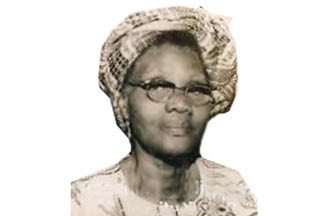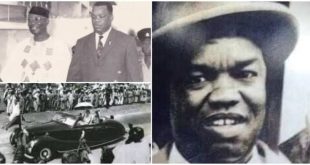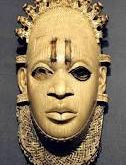
NIGERIA is truly blessed with women varied outstanding achievements and they’re in droves. However, amidst constellation of exceptional women that include late Dora Akunyili, Chimamanda Adichie, and Ngozi Okonjo-Iweala, one woman remains prominent and outstanding though often overlooked.
This is no other than late mother of the enigma, Fela (Ransome) Anikulapo-Kuti, Funmilayo Ransome-Kuti. Beyond being hailed as Fela’s mother, the first Nigerian woman to drive a car in Nigeria, or as mother of Olikoye, a former minister and Bekololari Ransome-Kuti, her indelible imprint as an activist, politician, educator, and champion of women’s rights deserves center stage. Several years after her death, Funmilayo Ransome-Kuti, tagged as the “Lioness of Lisabi,” transcended stereotypes.
Celebrating Funmilayo Ransome-Kuti: Champion of Women’s Rights
Born in 1900 as Frances Abigail Olufunmilayo Thomas, and married to Reverend Israel Ransome-Kuti, Funmilayo shattered barriers as the first female student to be admitted into Abeokuta Grammar School, the first grammar school in Nigeria. She enrolled as a student in 1914, pioneering female education in Nigeria though five other female students joined the school same year.
Following her education in London and marriage to Reverend Israel Ransome-Kuti, of Abeokuta, present day Ogun state in 1932, she established the Abeokuta Ladies Club (ALC), exclusive to only western-educated women, which metamorphosed into the feminist and political powerhouse.
Earlier, In 1918, colonial rule brought changes that made life particularly difficult for everyone, especially for women. One of these changes was tax imposition on women considered to be of marriageable age. This affected girls who were as young as 14 years old. They were required to pay a tax of three shillings yearly.
By 1944, the Abeokuta Ladies Club became open to market women who were illiterate and suffering under colonial rule. In 1946 the club became open to all Abeokuta women and changed its name to the Abeokuta Women’s Union (AWU) challenging colonial policies, such as unjust multiple taxes and oppressive regulations.
By 1948, the women had finally had enough. Since protests were banned, they gathered at the palace of the then-traditional ruler of Abeokuta, Oba Ladapo Ademola II, for “picnics” and “festivals”, demanding the removal of Oba Ladapo Ademola II for implementing the colonial policies
Their agitation thereafter culminated to the victorious abolition of taxes and the abdication of the traditional ruler for two years.
In the area of international advocacy, Ransome-Kuti, known for her brain and brawn as the sole woman in Nigeria’s 1947 delegation to London, boldly confronted colonial authorities, highlighting the plight of Nigerian women and the adverse effects of colonialism on their socioeconomic status.
Nigerians often celebrate independence patrons like Obafemi Awolowo, Nnamdi Azikwe among others for their roles in the country’s struggle for independence without mentioning the roles played by Funmilayo Ransome-Kuti as a member of the 1947 National Council of Nigeria and the Cameroons (NCNC) delegation to London to table demands before the colonialists.
However, her tireless efforts earned her global recognitions, which earned her the prestigious Lenin Peace Prize in 1970, a testament to her unwavering commitment to peace and justice.
As a loud voice for the women and after AWU’s victory against tax imposition in 1948, beautiful Ransome-Kuti created the Nigerian Women’s Union (NWU) to support women’s rights across the country. She set up branches around Nigeria and ensured educational opportunities for girls and women. She also worked towards improving the participation of Nigerian women in politics, this led to her appointment as a Member of the Order of the Niger (MON) in 1965 in recognition of her hard work.
With so many firsts to her credit, Funmilayo Ransome-Kuti lived a full life that expressed her passion about Nigerian women and their representation in the country. With everything she did and achieved, it’s a great disservice if we remember her only for her motor skills or simply as “Fela’s mother”.
Funmilayo Ransome-Kuti’s life epitomizes resilience, courage, and unwavering commitment to the advancement of Nigerian women.
Obviously, her third son, the famous Fela Anikulapo-Kuti took much of his activism from her, so did Dr Beko Ransome-Kuti. Unfortunately, during a military raid of her son’s house in 1978, soldiers threw her out of the two-storey building and died at 78 as a result of the injuries she sustained.
It is therefore imperative that her memory be preserved not merely as a footnote in history, but as a beacon of inspiration for generations to come by recognizing her multifaceted contributions.
 National Telescope national telescope newspaper
National Telescope national telescope newspaper




